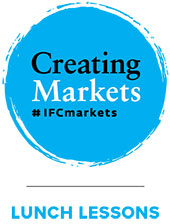
“Your pay stub, please.” That’s what mainstream banks usually say to customers in developing countries who come in looking for mortgages—because the bank needs some kind of proof that the loan will be repaid. But artisans, entrepreneurs, self-employed shop owners, and other workers in emerging markets who earn a living through informal jobs have no pay stub to show. It’s a high figure—over 70 percent of people in Kenya, for example, are employed informally. My team and I have been researching how financial institutions can help deliver affordable housing, making mortgages more available to these workers and their families. We started by asking the question, “How do we use technology to establish an informal borrower’s capacity to pay?” The answer, as I explain here, offers African banks a way to extend mortgage tenors to low- and lower-middle-income individuals searching for homes in Africa—getting them out of the slums and settled into a place of their own.
William Britt Gwinner, Head of Housing Finance at IFC
IFC recently invested $2 million in equity shares of Caisse Régionale de Refinancement Hypothécaire (CRRH), a mortgage refinancing company that serves countries in West Africa, to help it grow. The International Development Association (IDA)’s Private Sector Window then allowed IFC to provide $9 million in local currency to help CRRH close a 12-year bond issue. The funds from the entire bond issue—equivalent to $50 million—along with an IDA credit of $130 million were used to provide mortgage financing to lower-income households. IDA also provided a $25 million grant for housing policy reform and institution building.
Video by Stephan Bachenheimer
Follow the conversation: #IFCmarkets